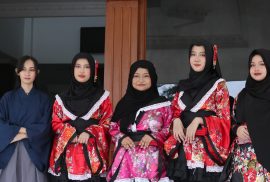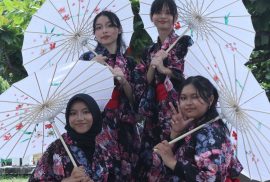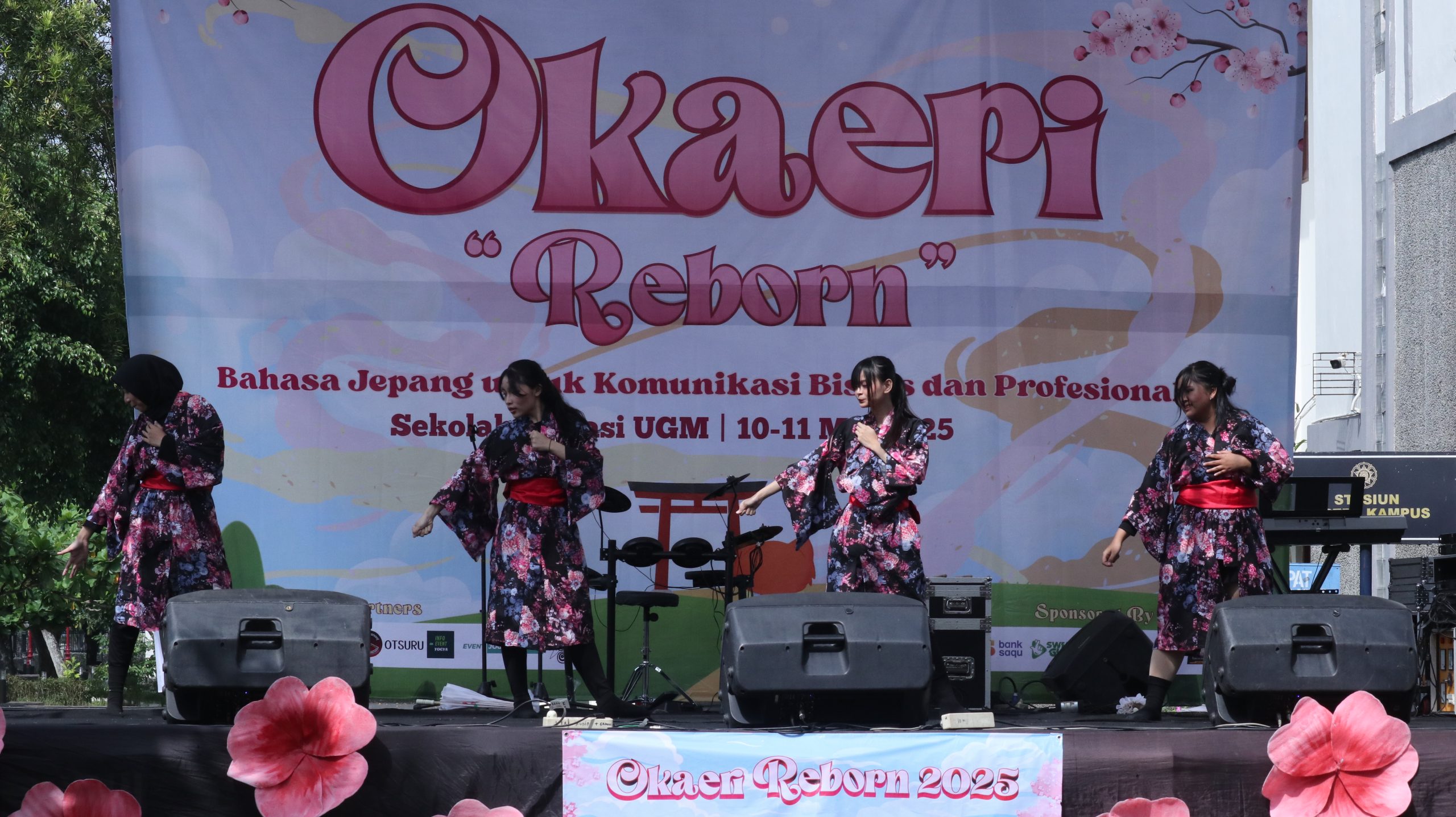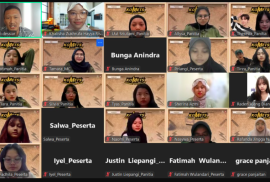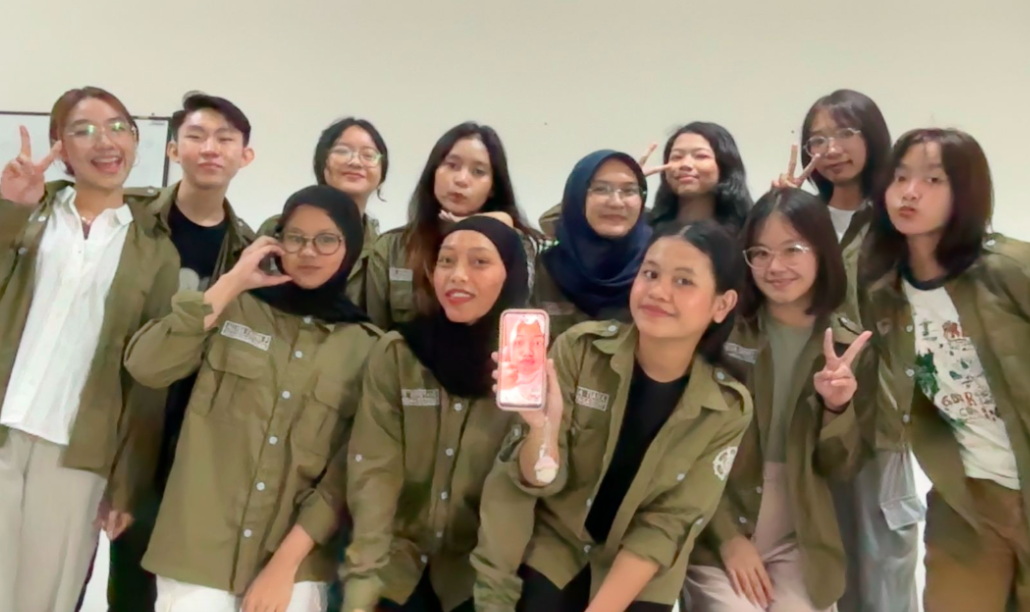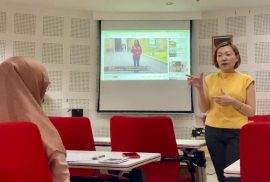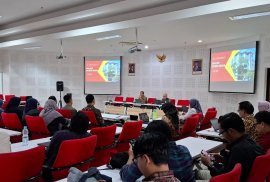Yogyakarta, 23/5/2025 – As part of the UNY Cultural Festival 2025, the dance group HIKARI from the Student Association of Japanese Language and Culture (HIMAJE) UGM, took the stage as one of the featured performers, bringing the rich essence of Japanese culture to life. With striking performances clad in traditional kimono and accompanied by fan props, HIKARI delivered not only aesthetic beauty but also heartfelt stories full of emotional depth and cultural meaning.
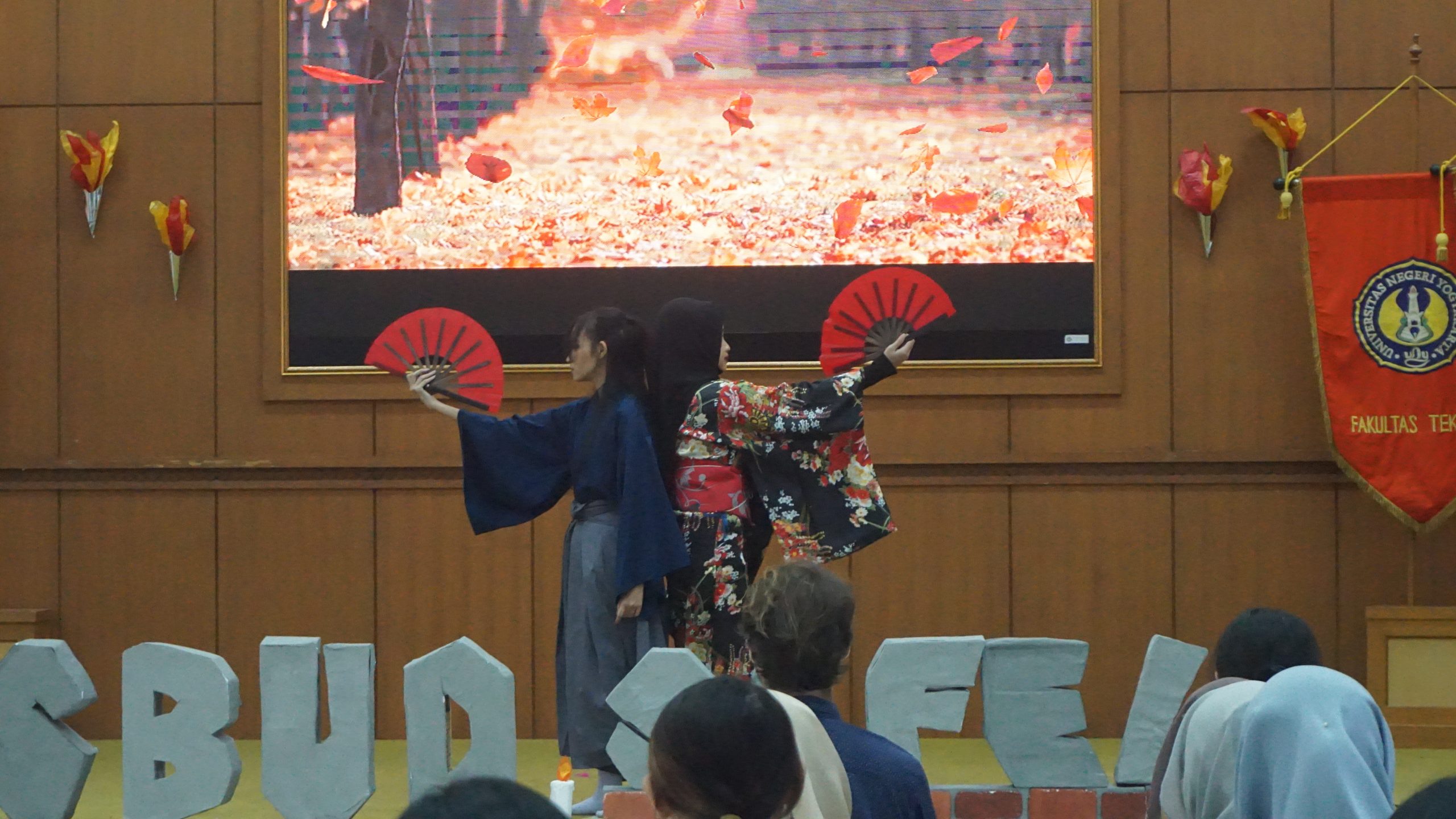
The first performance was a traditional-style dance set to the song “Tsugai Kogarashi” by Hinayuki. Performed by Listu and Sabrina (class of 2023), the duet portrayed Listu in a masculine role and Sabrina in a feminine one. Through graceful yet firm movements, they told the story of two souls bound by fate, wandering through the cold winds of autumn. The dance visualized themes of loyalty, loss, and the enduring hope that persists in a chaotic world.
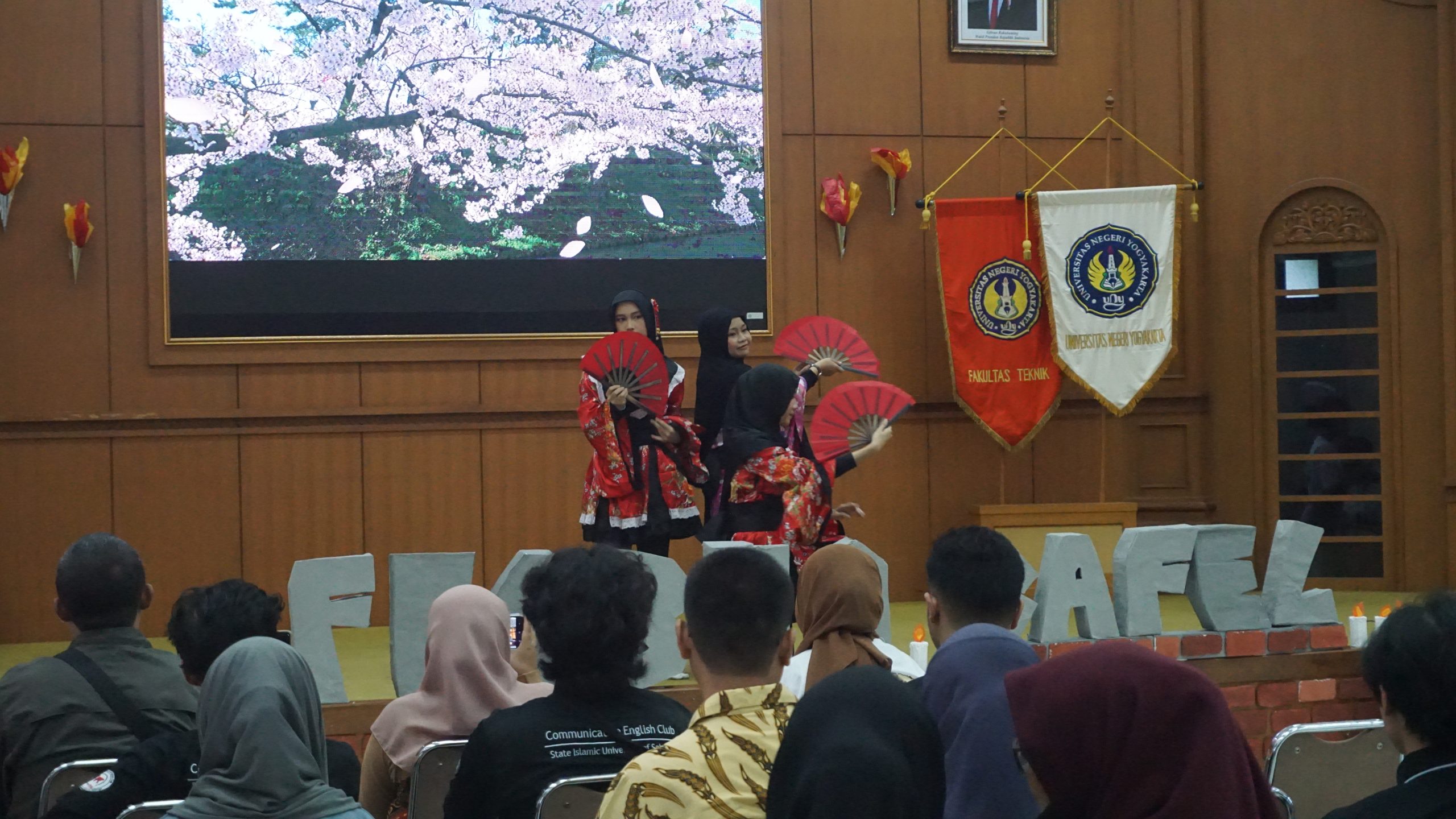
The second performance was a cover dance of the song “Usubeniiro no Yakusoku” by AKATSUKI, a group from the game Ensemble Stars!!. This routine was performed by three first-year students from the class of 2024: Rani, Bilqis, and Shelina. With synchronized and elegant choreography, they embodied the spirit of three idols united by quiet promises and unwavering commitment. Their performance reflected not just coordination, but also the strength that lies in silent determination—to stand firm amid change, to protect shared dreams, and to uphold values they believe in.
These two performances were more than just artistic showcases—they were meaningful learning experiences. Behind each movement lies a process of understanding culture, collaborating as a team, and conveying emotion and narrative through physical expression. With continued support from the Japanese Language and Culture Program at FIB UGM, students are encouraged not only to study Japanese culture through textbooks but also to live and experience it directly. Here, learning becomes holistic: touching the mind, touching the heart, and touching the soul.
[Public Relations of Japanese Language and Culture, Barra Taura Nursaid]

